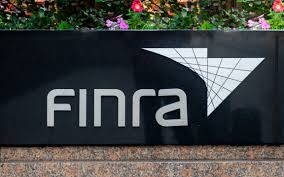October 2021 Regulatory Updates

Regulatory Actions and Updates from Around the Globe
Enforcement Highlights – October 2021
United States:
- The SEC charged CanaFarma Hemp Products Corp. and co-founders with defrauding investors of nearly USD $15 million and misappropriating a majority of investor funds for personal use and unrelated purposes.
- The SEC charged former broker and investment adviser Kenneth A. Welsh with misappropriating almost USD $3 million from his clients’ accounts in order to personally purchase gold coins and other precious metals.
- The SEC announced that clearing agency Fixed Income Clearing Corporation (FICC) will pay USD $8 million in penalties to settle charges that it failed to enact adequate risk management policies within its Government Securities Division.
-
Credit Suisse Group AG has agreed to pay hundreds of millions in penalties, including nearly USD $100 million to the SEC, for violating the Foreign Corrupt Practices Act (FCPA) and misleading investors in a fraudulent loan scheme in Mozambique.
United Kingdom:
- The Financial Conduct Authority (FCA) also fined Credit Suisse over £147 million for significant failure to conduct adequate due diligence regarding loans worth over $1.3 billion, which the bank arranged for the Republic of Mozambique.
Hong Kong:
- The Securities and Futures Commission (SFC) fined Ample Capital Limited $5.5 million and suspends its responsible officer for IPO sponsor failures.
Regulatory Updates
FATF: Updated Guidance for a Risk-Based Approach to Virtual Assets and Virtual Asset Service Providers
This latest update forms part of the FATF’s ongoing monitoring of the virtual assets and VASP sector and provides relevant examples and potential solutions to implementation obstacles. The 2021 Guidance includes updates focusing on updates and additional information in the following six key areas:
- Clarification of the definitions of virtual assets and VASPs
- How the FATF Standards apply to stablecoins
- Related risks and tools available to countries to address money laundering and terrorist financing risks for peer-to-peer transactions
- Licensing and registration of VASPs
- Public and private sector guidance on the implementation of the “travel rule”
- Principles of information-sharing and co-operation amongst VASP Supervisors
FinCEN: Updated Suspicious Activity Reports Statistics
The Department of the Treasury and the Financial Crimes Enforcement Network (FinCEN) recently released updated statistics on the SARs submitted up to the end of September 2021, showcasing an anticipated record high of over 3,000,000 SARs filed by the end of the year.
The challenge now facing enforcement agencies is to sift through the high volumes of reports to determine quality vs quantity. The AML Act of 2020 has been the biggest proponent of improvement in the quality of meaningful feedback and trends, with the purpose of encouraging higher-quality reporting, not simply higher quantity.
learn more
Is your AML compliance too expensive, time-consuming, or ineffective?
iComply enables financial services providers to reduce costs, risk, and complexity and improve staff capacity, effectiveness, and customer experience.
Request a demo today.
Enhancing Customer Onboarding: How One Insurer Improved Satisfaction by 25% with iComply
Discover how a national insurance company improved customer satisfaction by 25% and cut onboarding times by 50% using iComply’s automated KYC solution. Learn how they transformed compliance into a seamless, customer-friendly experience.
Boosting Compliance Efficiency: How One Broker Dealer Achieved 90% Improvement
Learn how a U.S. broker dealer achieved a 90% improvement in compliance efficiency to scale to billions of dollars a year. Discover how they consolidated KYC, KYB, and AML processes, reduced onboarding times from days to minutes, and transformed compliance into a competitive advantage
2025 Outlook: Data Privacy and Security in KYB, KYC, AML Compliance
In today’s rapidly changing digital landscape, data privacy and security are more crucial than ever for compliance teams. As regulations tighten and cyber threats evolve, businesses must prioritize innovative solutions. Enter edge computing, a game-changer for KYC,...




